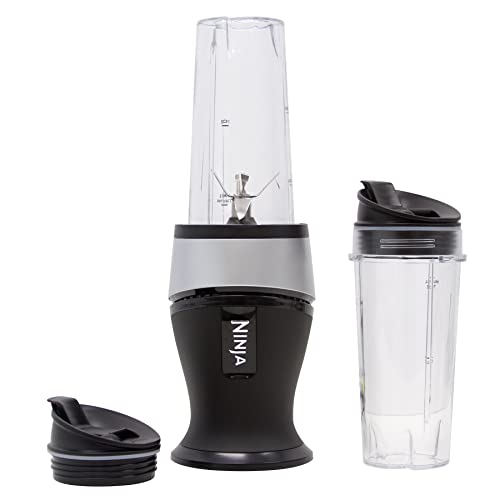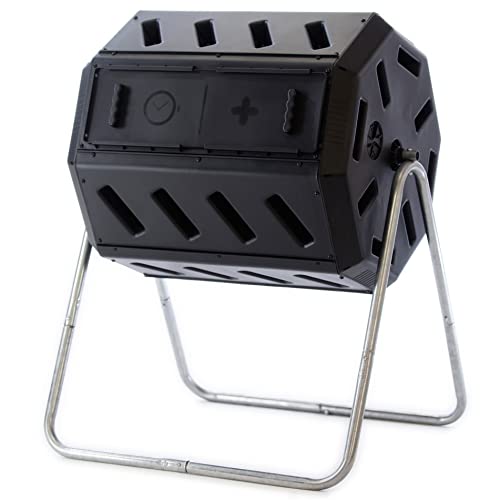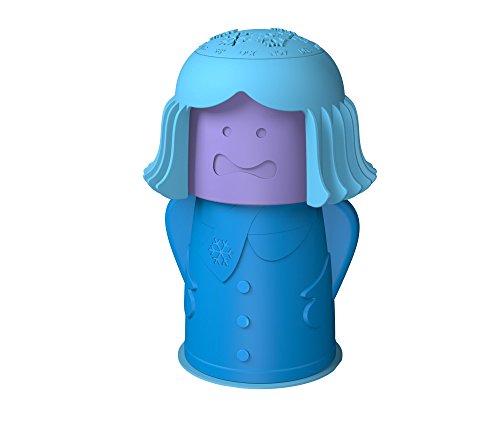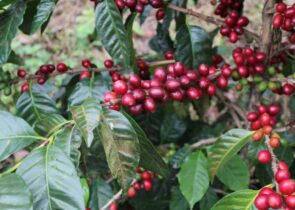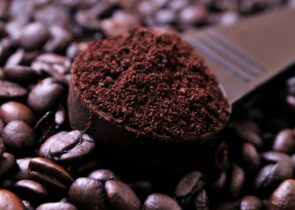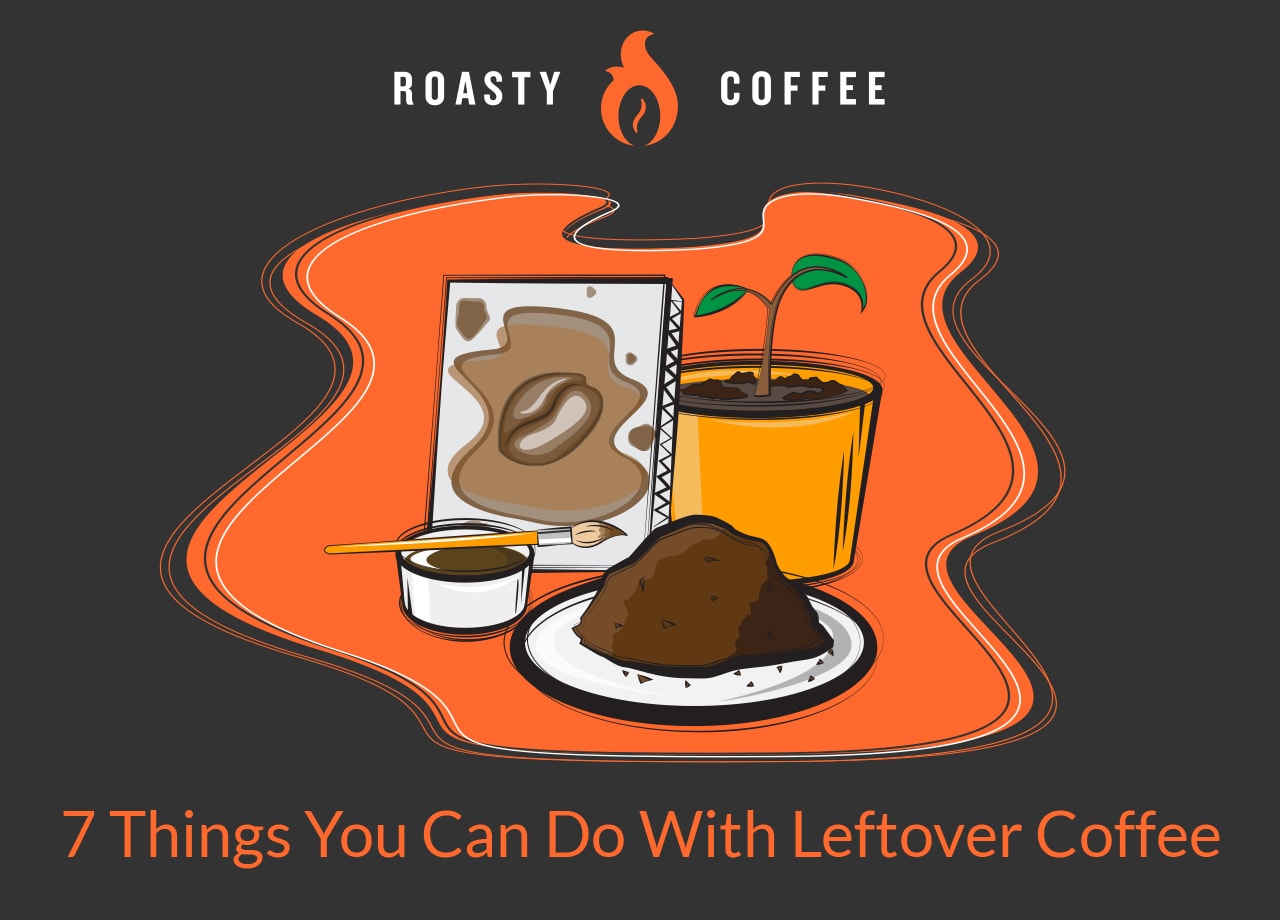
So maybe you thought you were going to drink way more coffee than you actually did. Or maybe you got so wrapped up your work that your carefully brewed cup is now a cold, abandoned mess.
Don’t waste your coffee just yet. Why not reuse it? Once you know what to do with extra brewed coffee and grounds, a little too much coffee can become a delicious or useful blessing.
What to Do with Leftover Coffee
We’re big proponents of measuring coffee so you don’t end up with leftovers in the first place. But we’re even bigger proponents of not wasting good coffee.
We did the work for you to find the best ways to use that leftover coffee up instead of pouring it down the drain.
1. Cook, Bake, and Blend
So many recipes call for coffee—why not try some for yourself? If you already have the extra coffee, you might as well treat yourself to a delectable brew-based dessert (or even a meal).
Sure, you have traditional recipes that call for coffee like tiramisu—coffee-soaked ladyfingers layered with whipped custard and cocoa powder—but a little imagination can take you to new culinary heights.
Cooking with Leftover Coffee
If you think about it, that extra coffee you’re trying to use up is essentially coffee-flavored water. You can use leftover brewed coffee in your steak marinade. When making a fruit compote, try using your brew instead of water for the perfect breakfast topping. You can even cook your morning oatmeal in coffee, if you really want to be efficient.
Coffee can also add extra acidity to whatever you’re making. Experiment with vinaigrettes by substituting the vinegar with coffee. Create your own caffeinated barbeque sauce or chili recipe. The possibilities are truly endless.
Using Coffee as a Water Substitute for Baking
You can use coffee as a substitute for water when you’re baking as well. Switch out coffee for water in a cake or brownie mix for a rich and delicious treat. (Talk about sweet-tooth satisfaction.) Then try giving coffee-flavored icing and frosting a shot for even tastier cupcakes and cookies.
Too early for sweets? Just put your coffee in the fridge and save it for baking in the evening. Just don’t let it sit for more than a day or two—you don’t want to bite into a cake and discover old coffee flavor.
Making Coffee Ice Cubes and Smoothies
Don’t like iced coffee because it gets watered down before you can drink it? Coffee ice cubes can fix that. Just pour any of your leftover coffee into an ice cube tray and freeze overnight. That way your iced coffee stays cold and undiluted.
But you can take coffee ice cubes one step further by making a coffee smoothie. Just blend coffee ice cubes, bananas, and a cup of milk or yogurt together for a cool caffeinated treat. You can even add some cocoa powder, cinnamon, or vanilla for an extra flavor boost.
2. Water Your Plants
Leftover brewed coffee is helpful outside the kitchen too. If you grow acid-loving plants like azaleas or orchids, cold, diluted coffee can give them a nice growth boost. But since liquid coffee is highly acidic, you should limit your coffee waterings to once every one or two weeks.
Be sure to keep an eye on your plants when watering with coffee. If you start getting yellow or brown leaves, that’s a sign your soil is too acidic. And, of course, don’t use the coffee to water plants if you add cream, milk, or sugar. It can attract pests and fungus.
3. Get Crafty
We worry all the time about coffee stains, but what if you tried staining something with coffee on purpose? If you’re ever on Instagram, you might have seen coffee art. No, not latte art. Art that uses coffee as paint.
It’s some seriously cool stuff, plus it’s a cheap and non-toxic way for kids to get in touch with their creative side. All you need is watercolor paper and a couple of brushes to get started.
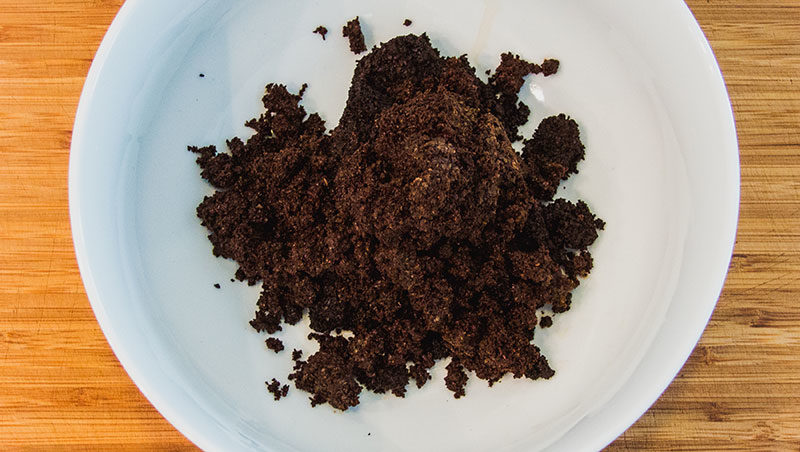
What to Do with Used Coffee Grounds
You’d be surprised with what people are doing with old coffee grounds. A company in the United Kingdom recycles grounds into biomass bricks and pellets for clean fuel. They’re even looking into making biodiesel out of used grounds. How cool is that?
With so much potential packed into what we think of as garbage, it’s time to flip the script. You probably won’t make your own gas, but you can put mineral-rich coffee grounds to work at home.
4. Fertilize and Compost
Even after you’ve brewed your cup of joe, your grounds are still packed with minerals that some plants would love to get in their tendrils. Sprinkle your coffee grounds directly on your lawn for greener grass. For your flowerbed, sprinkle equal parts compost and grounds to add some slow-releasing nitrogen for healthier bushes and flowers.
Not only that, your leftover coffee grounds might even help attract earthworms to your yard. They’re a key part to maintaining healthy soil.
And speaking of composting, adding grounds to your compost bin is also a handy way to boost good bacteria. A nitrogen-rich environment encourages the growth of microbes that feed your plants, although you might want to add some nitrogen fertilizer as well to make sure those microbes are fed.
5. Make a DIY Scrubbing Sponge
Grounds are naturally coarse, but they’re not so coarse that they’ll scrape up hard-to-clean but easy-to-damage pots and pans. That’s why coffee grounds make good DIY scouring pads.
Just rub your grounds into a rag, twist to hold them in place, and secure the twist with a rubber band. Then all you have to do is start scrubbing.
6. Get Rid of Odors
One of the reasons we recommend you avoid storing coffee beans in the refrigerator is because they’re great at absorbing odors. But once you’re done brewing, you can use those leftover grounds to soak up any bad smells in your fridge or freezer. It’s just like using baking soda to deodorize your home.
7. Safe Medicine Disposal
If you’re cleaning out your medicine cabinet, you probably know not to throw old medication directly into the trash. But do you know why?
The main reason is safety for children and animals—if you’ve ever seen what a puppy or a toddler can do to an unguarded garbage can, you know why. You also want to avoid making your trash a target for someone who might be looking for drugs.
Used coffee grounds help make home disposal of old medicine safer for everyone, especially if you don’t have a community drug take-back program in your area.
Simply remove the medication from its original container and mixed the pills with used coffee grounds in a sealable bag, empty can, or other container. This makes the drug less recognizable to someone going through your trash and less appealing to kids and animals.
Don’t Throw Away Your Coffee Just Yet
As you know now, there’s more to leftover coffee and used coffee grounds then pouring it down the drain or tossing them in the dumpster.
So stop throwing away the perfect chance to extend the life of your coffee in your food, your plants, and your cleaning.
Happy Caffeinating!

